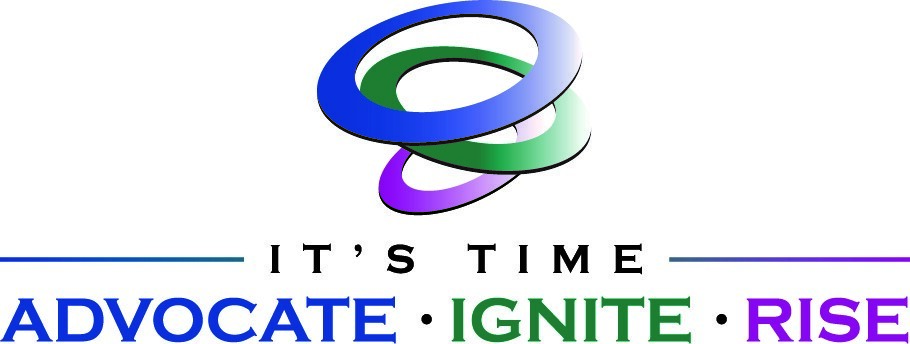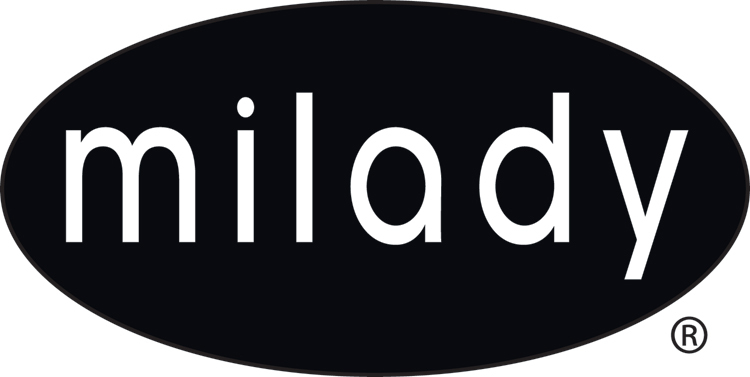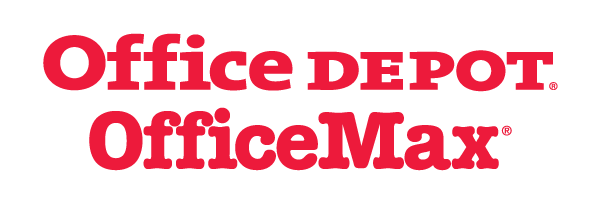 |
| Archive | Subscribe | Printer Friendly | Send to a Friend | www.beautyschools.org |
|
What's Hot

AACS is proud to provide unrivaled programming, networking and educational opportunities. To best serve our beauty educators, and ensure the safety and health of all conference participants, this year’s 2020 CEA & AMP is going virtual. Check out the schedule for this first-of-its-kind event here. Register to join us July 11-13, 2020. Click here for more information.

The annual N.F. Cimaglia Educator of the Year Award is co-sponsored by the AACS and Milady. It is a prestigious award given to one educator each year who has exhibited the most significant contribution toward upgrading professional standards of educational excellence, particularly within the areas of student involvement during the immediate past year. Nominations are due June 8, 2020. The winner will be announced during the Virtual CEA & AMP Conference, July 11-13, 2020. Click here for more information and to submit a nomination. It has been widely reported that earlier this week, U.S. House and Senate leaders enrolled the Congressional Review Act resolution, H.J. Res. 76 (116), to overturn the 2019 Borrower Defense to Repayment Rule. We feel strongly that the 2019 rule is a balanced improvement over the 2016 rule and should be allowed to stand. As an association and individual members, we are opposed to this resolution. Learn more how you can take action to advocate for your business and industry here.
Reopening Guide Ready for when your state approves, AACS has created a Reopening Guide to help your schools and organization proceed with protocols to ensure the safety and health of your staff, instructors, students, and community. In addition to resources, it also includes a state-by-state list of reopening policies. Click on this link to find out more.
Coronavirus Resource Center AACS is here for you with a comprehensive coronavirus resource page that will be updated as new information comes in. Click here for updates from the Centers for Disease Control, World Health Organization, Small Business Administration, U.S. Department of Education, accreditors, distance learning educators and more. The nomination period for the October 2020 election of the AACS Board of Directors is now open. There will be 5 School Member seats and 1 Partner Member seat open for this election. Nominations will be accepted through Wednesday, July 15, 2020. Serving as a Director is one of the most important ways that you can support and sustain AACS. Our Directors have the responsibility to provide foresight, oversight, and insight for the Association. They serve as our primary ambassadors, advocates and the conscious voice of our Members. Our Board of Directors should reflect the highest aspirations of our businesses, our students and our industry.

If you are interested in serving, complete this Board Nomination Application Form and send to Jim Petrillo, vice chair of the AACS Governance Committee. This short powerpoint addresses a few frequently asked questions. Member Benefits
 Preparing to reopen your school? Office Depot – OfficeMax member can help In addition to safety and health protocols, additional supplies will likely be needed to protect your instructors, staff and students as the learning continues. For a limited time, for AACS members only, cloth masks and face shields are available (supplies are limited).
Masks are available by calling Nicole Gutierrez at: (855) 337-6811 ext. 12673 or Sara Haltom at (855) 337-6811 ext. 12872. Whether working from home or back in your offices, OfficeMax is here to provide AACS members special benefits. Businesses using the Office Depot discount program see significant savings. Take advantage of the program today and you could save thousands of dollars per year! To learn more, click here Especially during this time of the coronavirus pandemic, we have been hosting webinars for members to provide the latest information to help you continue to serve your students and manage your business. If you missed a webinar, recordings are available to members only. Webinars to date are: Navigating Distance Education If you would like the recording, email info@beautyschools.org. More will be available soon. Monitor your inbox for the latest information. Additional FAQs are available regarding:  Prescription RX card benefit GRC News
Federal Legislative Weekly Update May 22, 2020 – The Senate plans to take up legislation next month that would give businesses more time to spend Paycheck Protection Program loans while still qualifying for forgiveness, extending the window from eight weeks to 16 weeks. By comparison, the House plans to vote on a bill, H.R. 6886 (116), next week that would give businesses 24 weeks, while also eliminating a requirement that at least 75 percent of the money is spent on payroll. May 21, 2020 – Sen. Lamar Alexander (R-TN) says that limiting liability for colleges that reopen this fall and providing greater flexibility for federal relief money would be top Republican priorities in any coronavirus relief package that the Senate takes up. Alexander, the chair of the Senate education committee, also told reporters Thursday that it was an “open question of whether there’ll be more funding for states and schools in a subsequent round of legislation.” If there is another round of coronavirus relief, Alexander said, Republicans would “insist that liability protection be included for businesses, schools—otherwise we’re not going to get back to work, back to college, back to school and out to eat.” May 26, 2020 – Education Secretary Betsy DeVos plans to move ahead with a policy that would boost the share of coronavirus relief dollars to private school students by writing it into a new regulation. The move comes after some states said they would defy non-binding guidance. DeVos said private schools have been “overwhelmed by COVID-19,” with a growing number of closures in low-income and middle-class communities. DeVos added: “I would encourage educators everywhere to be as concerned about those students and teachers as they are with those in public schools.” May 22, 2020 – Education Secretary Betsy DeVos on Friday announced approval of six state plans for career and technical education under a law signed nearly two years ago. Hawaii, Illinois, Maine, Maryland, Massachusetts and New Hampshire are the first states to have their plans approved under “Perkins V,” the bipartisan overhaul of the Carl D. Perkins Career and Technical Education Act, H.R. 2353 (115). Details about the approved plans are on the department's website. “The coronavirus pandemic has certainly highlighted the need for all education to be tailored to meet each student’s unique needs, more nimble and relevant to 21st-century realities,” DeVos said in a statement. “High-quality CTE programs are a critical way to help learners of all ages and get our economy back up and running at full speed.” A federal judge granted preliminary approval to a settlement that would force the Education Department to resolve its backlog of hundreds of thousands of “borrower defense” claims, writing in an order on Friday that the settlement “offers adequate relief.” The settlement calls for the Department to make decisions on most applications that were pending as of April within 18 months. Borrowers still waiting for a decision after that time will have 30 percent of their loans discharged for each month the department misses the deadline. The Department has released the indexed version of the 2019-2020 Federal Student Aid Handbook. In addition, the Department recently announced the availability of the Application and Verification Guide (AVG) of the 2020-2021 Federal Student Aid Handbook. May 21, 2020 – The Department posted a “clarification” of its HEERF guidance related to the use of student emergency funds. The Department has stated on its guidance portal that “guidance documents lack the force and effect of law.” For this reason, the Department will not take enforcement action against any school based solely on its statement in guidance that Title IV eligible students may receive student emergency aid funds under HEERF. Schools are only legally bound to the CARES Act language (and uses of funds set forth in the CARES Act) and any other applicable law. The Department is proposing an extension of the “Waiver Requests Related to the Adult Education and Family of Literacy Act and the Carl D. Perkins Career and Technical Education Act” information collection system. This information collection solicits from State educational agencies requests for waivers of section 421(b) of the General Education Provisions Act (to extend the period of availability for obligation of State formula grant funds authorized by the Carl D. Perkins Career and Technical Education Act of 2006 and the Adult Education and Family Literacy Act. The Centers for Disease Control and Prevention issued new guidance for colleges as they reopen their campuses. Colleges will be looking to the CDC as many prepare to welcome back students, 19.9 million of whom were enrolled at U.S. colleges last fall. While the guidance does not address when or whether colleges should resume in-person classes, it describes practices colleges can put in place to reduce coronavirus spread and promote a healthy student body and workforce. It also outlines steps they should take to address suspected COVID-19 cases on their campuses. May 20, 2020 – Nearly 5 million student loan borrowers who got a break on their monthly payments from Congress under the economic rescue law have been hit with incorrect information on their credit reports, which lowered their credit scores in some cases. The Trump administration has been rushing to fix the errors made by a company hired by the federal government to collect and manage student loans. Great Lakes Educational Loan Services provided incorrect information about approximately 4.8 million federal student loan borrowers to credit bureaus like Equifax, Experian and TransUnion, Education Department officials confirmed to POLITICO on Wednesday. The Chicago Teachers Union has sued the city’s school system and Education Secretary Betsy DeVos in a challenge to city orders that allegedly require major revisions to education plans for tens of thousands of special needs students who are no longer in classrooms. The union wants a judge to stop the Trump administration and the city from enforcing regulations that have prompted the school system to require that staff review and revise individualized education and accommodation plans for students with disabilities. Without a court-ordered waiver, the union alleges its members “would be required to conduct a whole scale redrafting” of some 60,000 learning plans for Chicago schoolchildren. The Federal Student Aid released a series of quarterly updates to its portfolio reports on its FSA Data Center to include data as of March 31, 2020. These reports provide a snapshot of the federal student loan portfolio as it existed in FSA systems on March 31, 2020, just four days after the passage of the CARES Act on March 27, 2020. Changes to borrower accounts as a result of the administration’s executive action in late March, and provisions in the CARES ACT are underrepresented in these reports due to the timing of this snapshot. May 19, 2020 – The bipartisan rebuke of Education Secretary Betsy DeVos’ “borrower defense” rule that cleared Congress earlier this year is now heading to President Donald Trump’s desk. House and Senate leaders on Tuesday enrolled the Congressional Review Act resolution, H.J. Res. 76 (116) to overturn DeVos’ new rule. That final procedural step now means that legislation will be presented to the White House for Trump’s signature or veto. The White House previously issued a Statement of Administration Policy threatening to veto the measure. White House staff continue to point to the recommendation as the planned course of action. Washington Attorney General Bob Ferguson is suing Education Secretary Betsy DeVos over her agency’s decision to exclude undocumented students from receiving financial aid included in the coronavirus stimulus law. “Betsy DeVos is unlawfully trying to deny Dreamers and other Washington students the assistance they need — and that Congress intended,” Ferguson said in a statement, adding that his state has nearly 17,000 students who are protected under the Obama-era Deferred Action for Childhood Arrivals program. The Department, on its website last week and in a court filing on Monday, said its guidance that barred undocumented students and others who don’t qualify for federal financial aid from an emergency coronavirus relief program was only a “preliminary” policy that hasn’t been fully developed.
S.3760 – A bill to amend the Higher Education Act of 1965 to provide for a percentage of student loan forgiveness for public service employment, and for other purposes. The last week of May finds 11 state legislatures actively meeting. The focus of this week’s update is state legislation limiting civil liability due to COVID-19. As states reopen their economies, AACS will keep you apprised of the latest developments of interest to member schools. Arizona’s House of Representatives voted 31 to 29 last week to pass a bill to limit civil liability during the COVID-19 emergency. HB 2912 specifically exempts a school or person who owns or operates a business, corporation, limited liability company, church, religious institution or nonprofit organization from “being liable, except in cases of gross negligence, to an individual who contracts COVID-19 during the state of emergency order related to the COVID-19 outbreak, including after the individual enters or remains on the premises of the school or person.” The bill has been transmitted to the Senate. A similar Oklahoma bill was signed into law by Governor Kevin Stitt (R) last Thursday. According to an official summary, “SB 1946 establishes immunity from civil liability for persons or entities conducting in the business in the state from actions related to an injury from exposure or potential exposure to COVID-19 if the act or omission alleged to violate a duty of care of the person or agent was in compliance or consistent with federal or state regulations.” The bill, which contained language making it effective upon enactment, was passed by the Senate by a vote of 34 to 11 and the House by a vote of 76 to 20. Louisiana’s Senate unanimously passed a civil liability immunity bill earlier this month. SB 435 states that “no person or entity, including any local or state governmental entity or employee thereof, shall be liable for damages or personal injury resulting from or related to an actual or alleged exposure to COVID-19 in the course of or through such person or entity's business services or while engaged in the performance of such person or entity's duties, provided that the person or entity was relying on and generally followed applicable government standards and guidance related to COVID-19 exposure.” The bill also contains language stating that the liability immunity “shall not affect the right of any person to receive benefits to which he would otherwise be entitled under the workers' compensation law.” Louisiana SB 435 is scheduled for House floor debate this week. COVID-19 civil immunity legislation – SB 3989 – was also introduced in Illinois last week by a Republican state senator. Republicans currently hold only 19 seats in that 59-seat legislative chamber. For more information on any of the bill listed, please click here to visit AACS’ Bill Tracking Portal. In California, the Department of Finance is proposing a significant increase in Bureau for Private Postsecondary Education (BPPE) licensing fees. The “trailer bill” language can be found here. The relevant language is in the last section of the 13-page PDF. As you can see below, licensure fees for a main California campus would increase from 0.45 percent of gross revenue to 0.855 percent of gross revenue. (A) An annual fee for each campus designated by the institution as a main campus location in California, in an amount equal to 0.45 0.855 percent of the campus’ total gross revenue derived from students in California, but not to be less than two thousand five hundred dollars ($2,500) five thousand dollars ($5,000) and not to exceed sixty thousand dollars ($60,000) one hundred fifteen thousand dollars ($115,000), unless the bureau establishes a lower fee. The Professional Beauty Federation of California (PBFC) is working with the California Association of Private Postsecondary Schools (CAPPS) to address these steep fee increases. To this end, PBFC has sent letters to the key Assembly and Senate Subcommittees last week. California schools are also encouraged to lobby their state legislators against them. Please do not hesitate to contact Brian Newman at bnewman@abingdonstrategies.com or by phone at 202-491-5254 with comments, questions or for assistance with your advocacy efforts. AACS Guide to Reopening AACS Coronavirus Resource Center National Governors Association Coronavirus Updates COVID-19 State Legislation – National Conference of State Legislatures |









